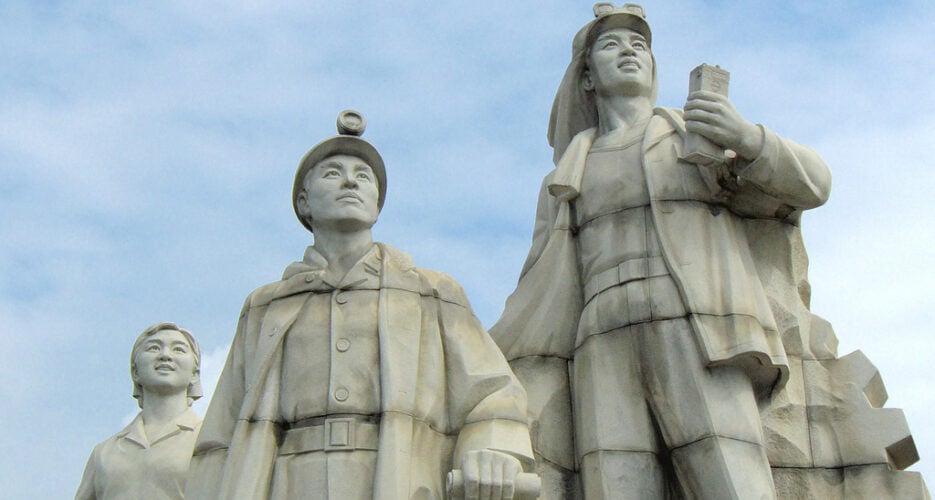In his new book, B.R Myers challenges the notion that Juche is the ruling ideology of the regime in Pyongyang and asserts that Juche was never central to the North Korean leadership’s policymaking. This is a point that Myers made in his previous book, The Cleanest Race: How North Koreans See Themselves and Why It Matters (2010). But with North Korea’s Juche Myth, Myers seeks to once and for all end discussion of Juche, typically described as a doctrine of radical self-reliance, as the true guiding light of the Kim family regime and expose it as a smokescreen for North Korea’s real ideology: paranoid, race-based, ultra nationalism.
Myers argues that the West’s misunderstanding of Juche has been harmful to our interpretation of North Korean actions. Instead of viewing the DPRK as a state focused on unification of the Korean race, Westerners have interpreted North Korea as a failed communist state that desperately clings to self-reliance in an age of globalization. Myers sees this misunderstanding of Juche as not only harmful but dangerous as it results in the West’s misguided hope for reform in the DPRK or a thaw in relations between the DPRK and the United States.
In his new book, B.R Myers challenges the notion that Juche is the ruling ideology of the regime in Pyongyang and asserts that Juche was never central to the North Korean leadership’s policymaking. This is a point that Myers made in his previous book, The Cleanest Race: How North Koreans See Themselves and Why It Matters (2010). But with North Korea’s Juche Myth, Myers seeks to once and for all end discussion of Juche, typically described as a doctrine of radical self-reliance, as the true guiding light of the Kim family regime and expose it as a smokescreen for North Korea’s real ideology: paranoid, race-based, ultra nationalism.
Myers argues that the West’s misunderstanding of Juche has been harmful to our interpretation of North Korean actions. Instead of viewing the DPRK as a state focused on unification of the Korean race, Westerners have interpreted North Korea as a failed communist state that desperately clings to self-reliance in an age of globalization. Myers sees this misunderstanding of Juche as not only harmful but dangerous as it results in the West’s misguided hope for reform in the DPRK or a thaw in relations between the DPRK and the United States.
Become a member for less
than $5.75 per week.
Unlimited access to all of NK News: reporting, investigations, analysis
The NK News Daily Update, an email newsletter to keep you in the loop
Searchable archive of all content, photo galleries, special columns
Contact NK News reporters with tips or requests for reporting
Get unlimited access to all NK News content, including original reporting, investigations, and analyses by our team of DPRK experts.
Subscribe now
All major cards accepted. No commitments – you can cancel any time.












